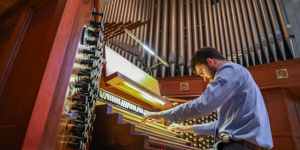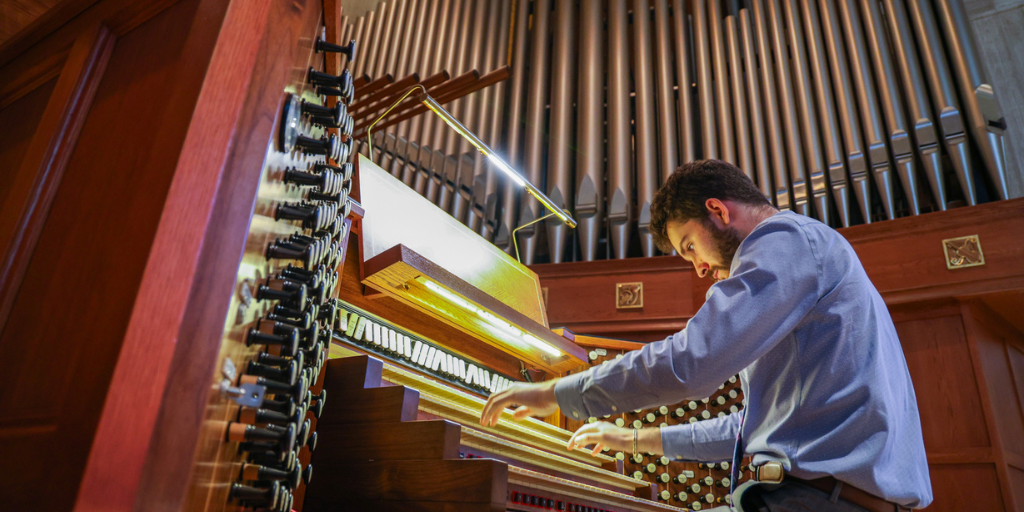
This June, the Basilica was delighted to welcome Adam Chlebek as its new Assistant Director of Music. A versatile musician experienced in conducting, ensemble playing, and organ performance, Adam has distinguished himself as an international performer and mastered styles ranging from sacred music to jazz and psych-rock! As we welcome Adam to the Basilica, we invite you to read this exclusive interview detailing his musical journey, his diverse interests, and what he’s most looking forward to in his new role.
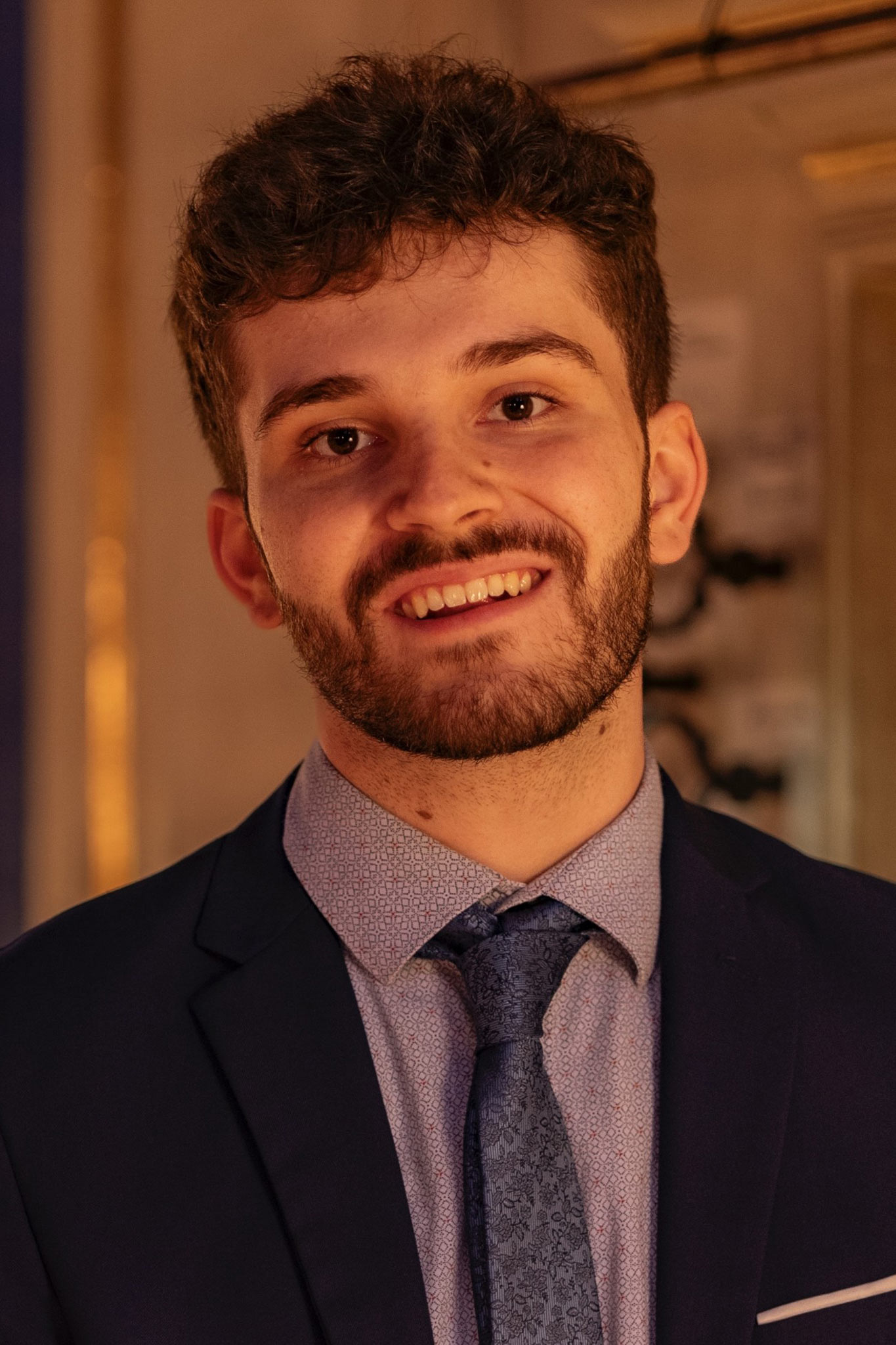 Can you tell us about your early musical background?
Can you tell us about your early musical background?
My musical journey began when my parents signed me up for guitar lessons at five years old. While I no longer play guitar, that was the basis of my musical formation, and three years later, I began taking piano lessons, which I continued throughout high school. My piano teacher had a Hammond organ in her studio that I often gravitated towards, and after about two years of piano, I asked her if I could begin taking organ lessons. The rest is history!
You served as the first Sacred Music Intern at the Basilica in 2022, while you were an undergrad at the Oberlin Conservatory of Music. Would you like to tell us about that experience, and how it feels to be back now?
Every year, Oberlin reserves the month of January for Winter Term, which gives students the opportunity to pursue projects and interests outside their regular curriculum. Thanks to Dr. Peter Latona, I spent my 2022 Winter Term at the Basilica, working with the Sacred Music program, studying improvisation, composition, and hymn playing, as well as accompanying daily Masses, playing for Sunday Masses, and sitting in on choir rehearsals. This transformative experience not only shaped my perception of Catholic Sacred Music in the liturgy, but made me want to return to the Basilica.
It’s difficult to describe how it feels to be back now. It’s a homecoming, a dream come true. I have long admired the Basilica’s mission, and to now participate in its work of transforming hearts and minds is the greatest calling.
As a musician, you’ve worn a lot of hats, playing styles from jazz and psych-rock to sacred music, and serving as a conductor, singer, and instrumentalist. Can you tell us a bit about some of your musical experiences outside the traditional classical and sacred music realms?
I am a firm believer in being a versatile musician and immersing yourself in various types of music, because each style informs the other. During my undergraduate studies at Oberlin, I served as the keyboardist for a psych-rock band based out of the Chicago area, performed in multiple bands and jazz ensembles, and even sang polyphony and early music in Collegium Musicum, Oberlin’s early music choir.
Additionally, improvisation is an integral part of being an organist, and for me, so much improvisational skill has emerged from my immersion in jazz idioms. Likewise, playing classical music gives me a clear insight into harmony and form in other non-classical idioms.
What do you most enjoy about playing the organ and being a musician?
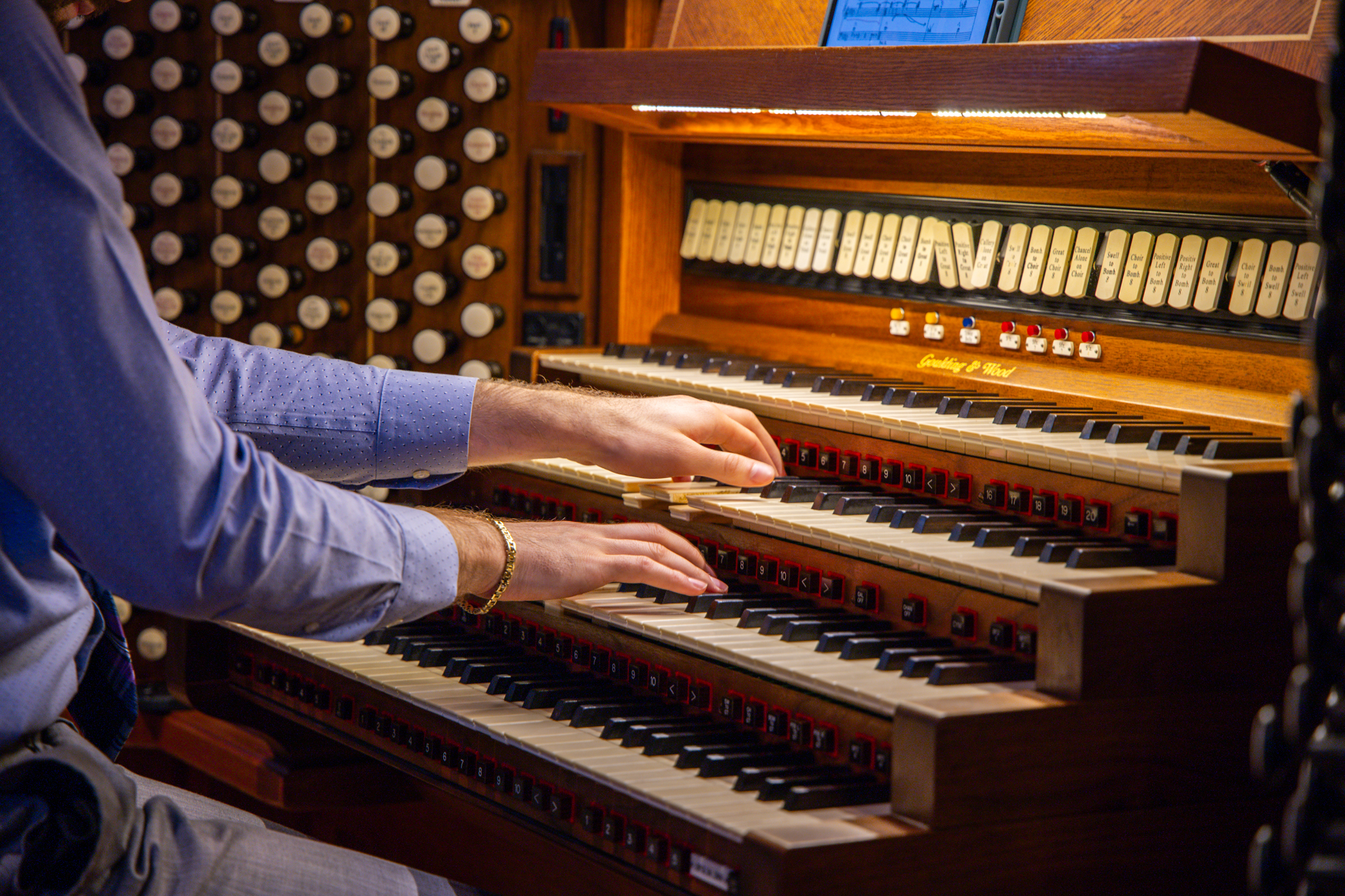 What I most enjoy about the organ is how it can convey every emotion on a uniquely grand scale, whether it’s roaring with great force, or speaking more intimately. In the sacred context, this emotional range beautifully elevates the liturgy by inspiring the listener to more reverent prayer and contemplation.
What I most enjoy about the organ is how it can convey every emotion on a uniquely grand scale, whether it’s roaring with great force, or speaking more intimately. In the sacred context, this emotional range beautifully elevates the liturgy by inspiring the listener to more reverent prayer and contemplation.
Across genres and styles, the beauty of music lies in its ability to foster human connection. Some of the most special moments in my life have been experiencing music with others, whether I’m playing or listening. In ensemble playing, collaboration fosters a spiritual connection between the musicians.
Can you tell us about some of your favorite pieces and composers?
I’ve always been drawn to the organ music of Maurice Duruflé, specifically the “Suite” and the “Prelude and Fugue on the name of Alain.” He is often regarded as a late impressionist in his employment of harmony and timbre, which is deeply intriguing and incredibly satisfying to play.
More recently, I’ve gained a great appreciation for the third volume of Johann Sebastian Bach’s “Clavierubung,” particularly for its Trinitarian rhetoric. The Prelude and Fugue in E-flat major that bookend the full work are shining examples of Bach’s use of motives to symbolize the Father, the Son, and the Holy Spirit.
What is the importance of faith in your life? Can you tell us how you became interested in sacred music?
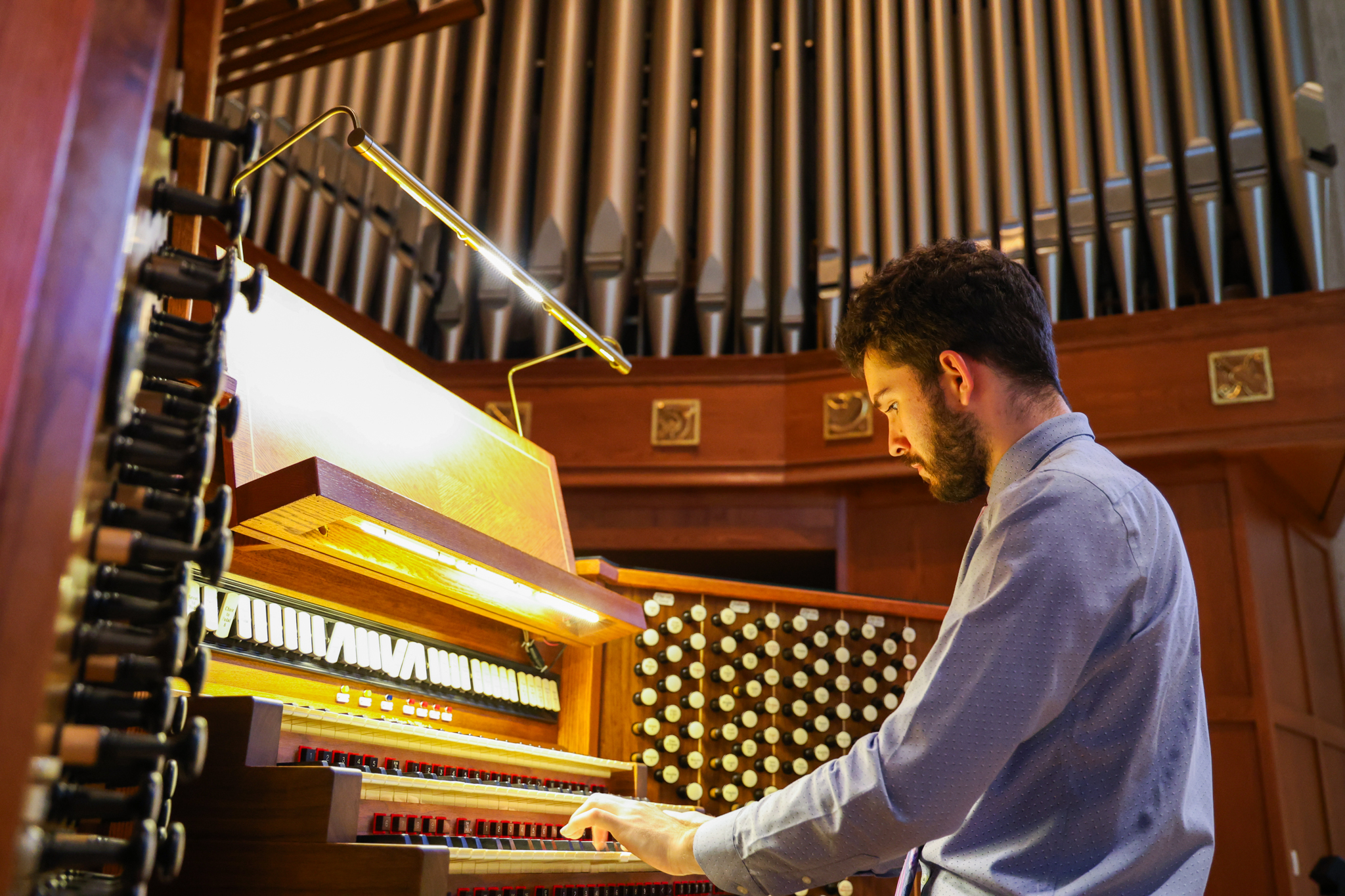 For me as a first-generation Polish American, faith and culture went hand-in-hand – including sacred music. My family always encouraged me to go to church and pray with them when I was growing up, and the Missionary Sisters of Christ the King, who led Polish schools throughout the Chicago area, also were significant spiritual influences in my life.
For me as a first-generation Polish American, faith and culture went hand-in-hand – including sacred music. My family always encouraged me to go to church and pray with them when I was growing up, and the Missionary Sisters of Christ the King, who led Polish schools throughout the Chicago area, also were significant spiritual influences in my life.
Throughout my childhood, I was always inspired by the robust tradition of congregational singing in Polish Catholic churches, which contributed to my interest in playing the organ. I also sang in the children’s choir for the Polish school at our Catholic parish. Today, I hope to follow the examples set for me in living out the faith both culturally and spiritually.
What are you most looking forward to about joining the Basilica as Assistant Director of Music?
Working with the choir is certainly high on the list. I have come to know them as splendid musicians and people, and making music with them is such a joy.
Playing for Masses in the Crypt Church is certainly something else that I look forward to. The quiet intimacy of the Crypt, the strong congregational singing at Mass, the function of musical improvisation in that context, and the beauty of the Schudi organ were what left the greatest impression on me back in 2022, so I’m very excited to experience that all again.
Do you have any advice for musicians interested in pursuing a career in sacred music?
Never lose sight of the purpose of this vocation. Sacred music is unique in that it is not primarily a performance, but instead the worship of our one true God. Allow yourself to pray through the music you make, and likewise do your best to lift others to the praise of God.
A Polish-American from Chicago, IL, Adam Chlebek has a Master of Music degree in Organ Performance from the Eastman School of Music, and a Bachelor of Music degree in Organ Performance from the Oberlin Conservatory of Music. Adam has distinguished himself as an international musician, winning second prize at the 2022 Taylor Organ Competition and performing as a finalist in the 2024 Elizabeth Stephens International Organ Competition. You can read his full bio here.

